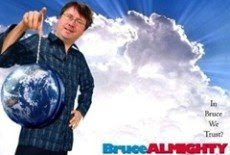It’s been a dark week for our judicial system, with proof that justice is not just blind, but also deaf and dumb. Like a lot of people in the Knoxville area, I have closely followed the kidnapping and murder case of Channon Christian and Chris Newsom. A young couple who appeared to do nothing wrong except be at the wrong place at the wrong time, they were viciously tortured and murdered in January 2007 by a group of thugs whose sadism was so extreme that the details continue to shock and disturb today.
We’ve all heard stories of serial killers and lone psychos who do evil, deranged things, but it’s even more upsetting to consider that a group, even those bound by blood relation or friendship, could agree to participate in such hideous behavior. Not one of the five, apparently, stepped forward to help this young couple during this nightmarish weekend. There was no compassion for their pain or fear. No compassion for their shared humanity.
This week brought the conclusion of the first defendant’s trial. Although pleading guilty to some of the charges, including rape (which he later testified about and tried to justify), he plead “not guilty” to the more serious charge of murder, and claimed that he could not stop the actions of his brother and others who were truly at fault for the crime. Despite having the opportunity to release Channon Christian at one point early in the ordeal while he was alone with her, the defendant admitted to coercing a sex act from her instead, with the promise that he would try to get her set free. The promise was forgotten immediately and he stayed in the house with her throughout her continued torture, further rapes, and eventual death.
The jury found him guilty of First Degree Murder and Kidnapping, which are capital offenses and therefore eligible for the Death Penalty in Tennessee. While I can certainly appreciate the arguments for those who do not agree with the Death Penalty, I have always believed that the punishment should fit the crime. If there is absolute, inescapable evidence of murder or crime against humanity, then I believe the Death Penalty is a valid option.
*On a side note, and totally unrelated to any of this, are some observations I’ve had on how people think:
• Have you ever noticed that in general those who are “anti-death penalty” are generally “pro-choice” on the abortion issue?
• On the opposite side of that, those who are “pro-death penalty” are generally “anti-abortion.”
What I find most curious is that both sides justify their “anti” stance on the inherent “sanctity” of life. Now, this seems a little hypocritical to me, but I’m sure there are plenty of folks who would love to educate me on why their way is only correct way of thinking. There never seems to be a lack of folks willing to do that.
On Wednesday the Jury listened to family members of both the victims and the convicted beg for life and death. Photos of the defendant as a child were displayed as stories of his difficult life and lack of adult supervision were repeated through tears and pleas for compassion. All I could think of each time I heard a cousin implore the jury not to kill him was how many times he heard that from the mouths of his victims.
With logic I have yet to understand, the jury returned with a sentence of “Life without the possibility of Parole.” Do I find some comfort in the fact that he will never walk the streets again? Absolutely. I have a wife and three daughters, and their safety and protection is always on my mind. As the kids get older and venture out on their own, I worry about what person might be lurking around each corner. Any criminals we can get off the street and away from my family is always a good thing.
Still, what was the jury thinking? His guilt was undeniable. This same jury found him guilty of the charges, so how did they not sentence him to death? The decision came quickly, barely two hours into deliberations, which made me wonder if some members of the jury would have ever intended to deliver a penalty of execution. During the questioning of the jury pool, all of these members had agreed that they could deliver that sentence if necessary, yet despite what most legal observers of the trial deem as irrefutable proof of his guilt and culpability, they could not do it.
Our judicial system is built on the weakest possible framework: the swaying, brittle bones of the human whim. Despite the pounds of evidence, testimony and fact mounded upon one side of the scales of justice, the tiniest speck of personal introspection can tilt the balance. Is this based on “reasonable doubt” in the guilt or innocence of the defendant? I do not think so. I believe it is based on doubts in our own ability to deal with the tough decisions that must be made. Separating that “personal doubt” from the final, horribly difficult choice is where our system so often falls apart.


No comments:
Post a Comment